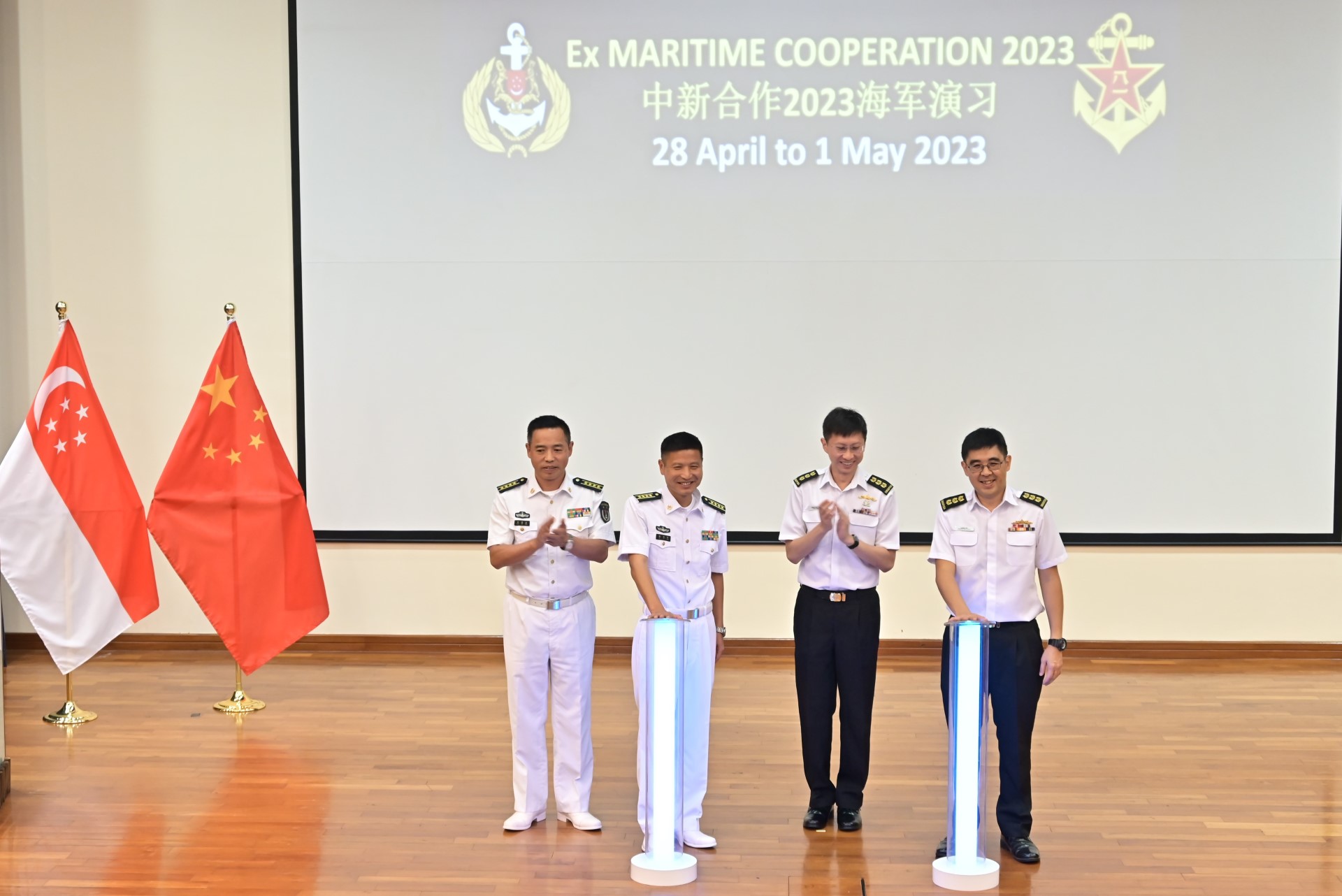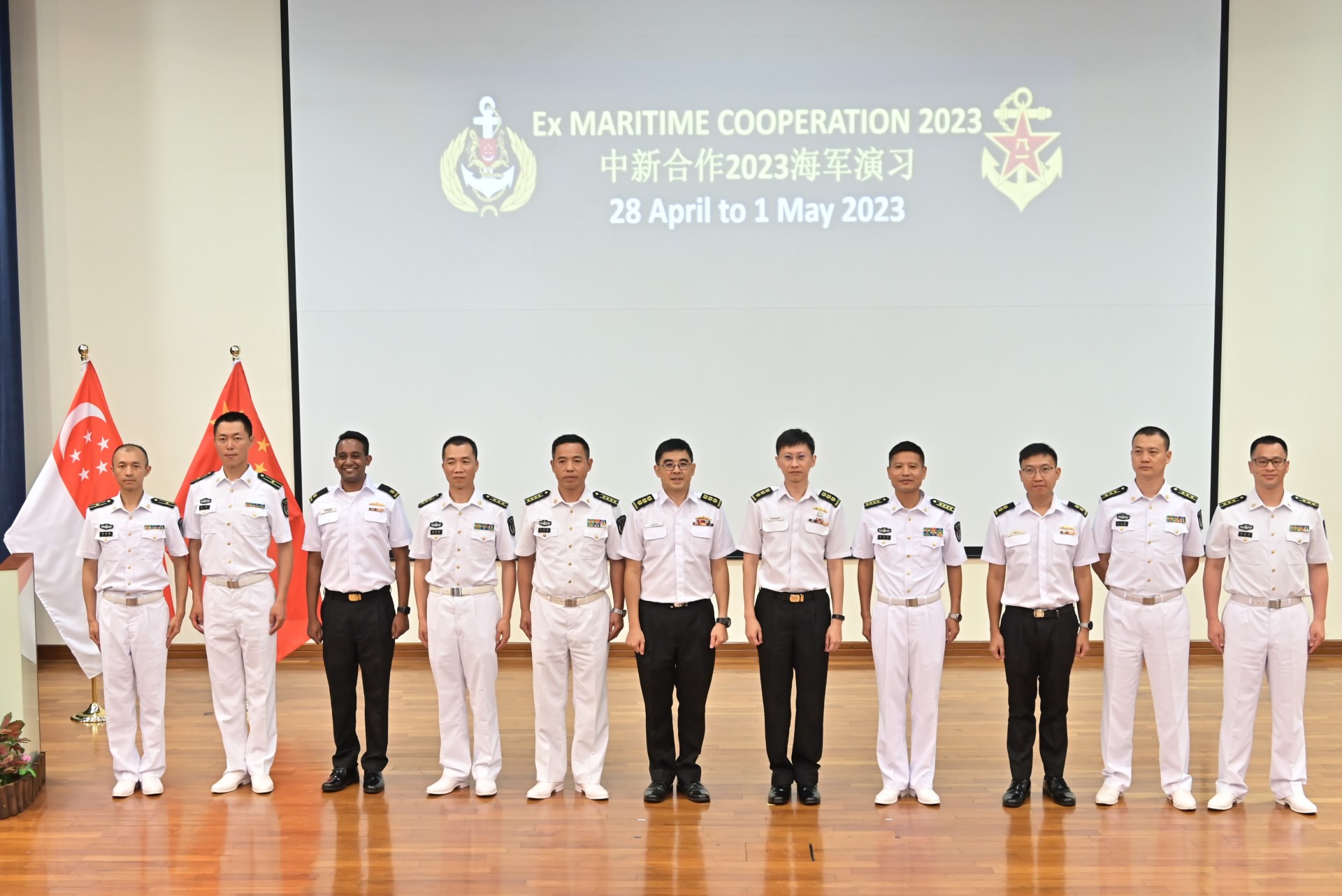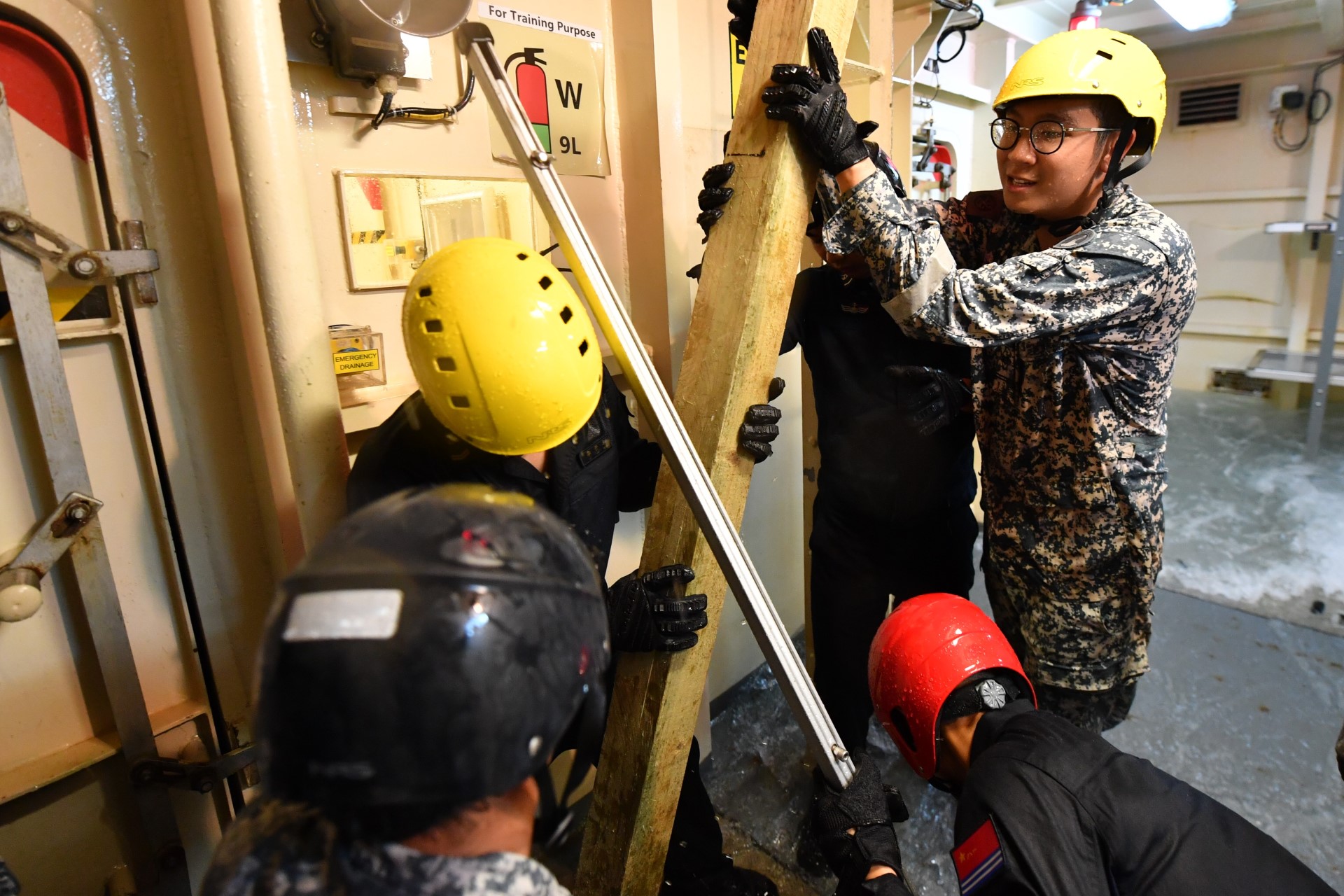The Republic of Singapore Navy (RSN)'s Commander First Flotilla Colonel (COL) Ng Kok Yeng Daniel and People's Liberation Army (Navy) (PLA[N])'s Chief of Staff of Destroyer Flotilla Senior Captain Mei Leyang, co-officiated the Exercise Maritime Cooperation opening ceremony at RSS Singapura – Changi Naval Base (CNB) earlier today. Both navies are conducting the bilateral maritime exercise from 28 April to 1 May.
This year's Exercise Maritime Cooperation is the second in the series since its inauguration in 2015. The exercise consists of a shore phase in RSS Singapura – Changi Naval Base (CNB), and a sea phase in the southern reaches of the South China Sea within international waters. The exercise involves the RSN's Formidable-class frigate RSS Intrepid, Bedok-class Mine Countermeasure Vessel RSS Punggol, and the PLA(N)'s Jiangkai II-class frigate (Yulin) and Wozang-class Minesweeper (Chibi). During the shore phase, personnel from both navies will engage in joint planning exercises, professional exchanges and combined training at the Damage Control Trainer. During the sea phase, the ships will conduct a range of serials, including helicopter cross deck landing with the PLA(N) helicopter landing on the RSS Intrepid, gunnery firing, replenishment-at-sea approaches, search and rescue, simulated minefield transits, as well as communication and manoeuvring exercises.
Speaking at the opening ceremony, COL Ng said, "The RSN conducts regular bilateral and multilateral exercises with foreign navies, and Exercise Maritime Cooperation 2023 allows the RSN and the PLA(N) to strengthen mutual trust, understanding, and cooperation. It also enhances our bilateral relationship and people-to-people ties." Senior Captain Mei Leyang also said that this exercise aims to "further deepen friendship, expand consensus and promote the continuous forward development of the two navies."
The exercise underscores the warm and friendly bilateral defence relations between Singapore and China, and enhances mutual trust and understanding between the SAF and PLA. Besides bilateral exercises, the two armed forces also interact regularly through high-level exchanges, mutual visits, cross-attendance of courses and port calls.
 Chief of Staff of Destroyer Flotilla, Southern Theatre Command, People's Liberation Army (Navy) (PLA[N]), Senior Captain Mei Leyang (second from left) and Commander First Flotilla, Republic of Singapore Navy (RSN), Colonel (COL) Ng Kok Yeng Daniel (right) officiated the Opening Ceremony, witnessed by Deputy Chief of Political Work Department of Naval Base, PLA(N), Senior Captain Cheng Guochun (left) and Fleet Commander, RSN, COL Kwan Hon Chuong (second from right).
Chief of Staff of Destroyer Flotilla, Southern Theatre Command, People's Liberation Army (Navy) (PLA[N]), Senior Captain Mei Leyang (second from left) and Commander First Flotilla, Republic of Singapore Navy (RSN), Colonel (COL) Ng Kok Yeng Daniel (right) officiated the Opening Ceremony, witnessed by Deputy Chief of Political Work Department of Naval Base, PLA(N), Senior Captain Cheng Guochun (left) and Fleet Commander, RSN, COL Kwan Hon Chuong (second from right).
 Senior Commanders from the RSN and the PLA(N) at the Opening Ceremony of Exercise Maritime Cooperation 2023.
Senior Commanders from the RSN and the PLA(N) at the Opening Ceremony of Exercise Maritime Cooperation 2023.
 RSN and PLA(N) personnel conducted joint training at the Damage Control Training Centre in Changi Naval Base.
RSN and PLA(N) personnel conducted joint training at the Damage Control Training Centre in Changi Naval Base.



